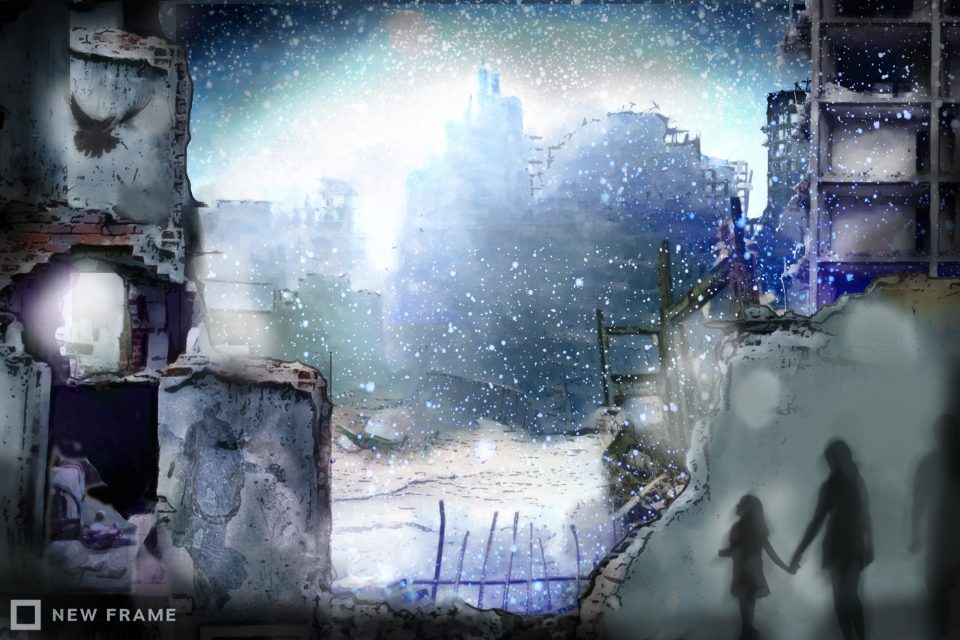Text Messages | On second thoughts
Not achieving the distinction of being first but instead coming second tends to cause dismay. But in the case of the Nagasaki bombing it also meant being last, which is a blessing.
Author:
30 July 2020

Stigma often attaches to the state of being second. Whether it is finishing second in some competition or existing as a second-hand object, the conceptual space between first and third is not comforting.
Consider the burden that second must bear. It is the beginning of everything that first excludes, and convenience means that judgements rarely extend beyond second-rate to third-rate and fourth-rate. Second is a permanent state of not being first, of not winning, of failing.
Second lives in the perpetual shadow of first and is a sort of placeholder for that which will come after it, lucky third. The problems of being the second child, and especially the second child who is the middle sibling of three, are well documented in psychology and behavioural studies.
So when August arrives each year, and with it the anniversaries of the two crimes against humanity that were the dropping of atom bombs on Hiroshima and Nagasaki, it is perhaps natural – but lamentable – that Nagasaki gets relatively short shrift. The first bomb was dropped on Hiroshima on 6 August 1945, the second on Nagasaki three days later.
Related article:
In the awful way of murderous doings, the first bomb was named Little Boy and held 64kg of uranium-235 while the second, a 21-kiloton plutonium implosion bomb, was called Fat Man. The final estimated death tolls were horrific: 200 000 in the case of Hiroshima, 80 000 for Nagasaki. Much of Hiroshima was destroyed; virtually all of Nagasaki.
The difference lay in the cities’ building materials. Nagasaki was very much an old Japanese city, like old Tokyo, with houses and civic, commercial and industrial buildings made of wood. Just as Tokyo was ravaged by deliberate and concerted fire-bombing that targeted its wooden structures, so Nagasaki was burnt to the ground.
Archival photographs of central Nagasaki after the bomb show a vast, empty expanse scarred by fire and punctuated erratically by the remains of buildings. The intact parts of some structures of brick and mortar, such as Urakami Tenshudo, the city’s Catholic church, are eerie spikes in a flattened landscape. The sense of absolute desolation is akin to that of the last lines of Shelley’s poem Ozymandias:
Nothing beside remains. Round the decay
Of that colossal wreck, boundless and bare
The lone and level sands stretch far away.
There were no more atomic bombs after Nagasaki. United States President Harry Truman is said not to have known that a second bombing was planned. Whatever the truth, he did at least ensure that no further such mass murder would be committed, by directing that only he could authorise the use of the terrible new weapon.
So it is that Nagasaki was the second city to be devastated by an atom bomb, but also the last. May that convergence of second and last always remain so.
Nagasaki is a powerful presence in one of the great humanitarian and anti-war songs, And the Yard Went On Forever by Jimmy Webb, recorded definitively by the late Richard Harris.
And here are the song’s lyrics:
And the Yard Went On Forever
[Background Chorus]
Is everybody safe?
Has everybody got a place to hide?
Is everybody warm inside?
Hear them singing
All the women of Pompeii
Standing with the Kansas City housewives in doorways
In volcanoes and tornadoes on doomsday
[Background Chorus]
De profundis clamavi ad te Domine
Donae nobis pacem
There were houses, there were hoses
There were sprinklers on the lawn
There was an ironing board
And she would stand and made her understand him
And ask the children what they’d done at school that day
And the yard went on forever
There were blouses with print roses, checkered shirts and white Levis
There was a frying pan and she would cook their dreams while they were dreaming
And later she would send them out to play
And the yard went on forever
[Background Chorus]
Is everybody safe?
Has everybody got a place to hide?
Is everybody warm inside?
Hear them singing
All the women of Pompeii
Standing with the Nagasaki housewives in doorways
In eruptions and destructions on doomsday
[Background Chorus]
De profundis clamavi ad te Domine
Donae nobis pacem

